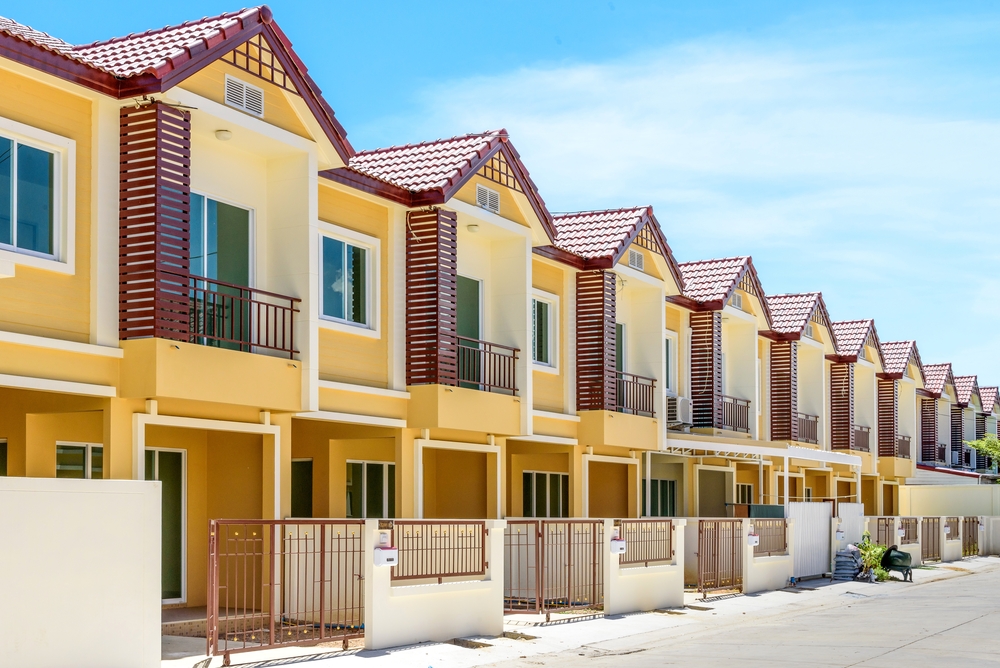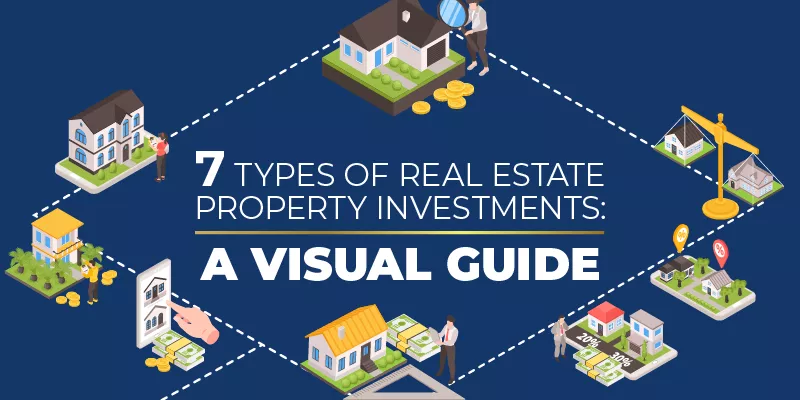Rental properties are among the best investment vehicles today due to their low-risk and high-return qualities. Looking ahead, the stabilization of the economy will make rental properties an even more profitable venture.
However, since there are different types of properties in the market, you’ll have to choose the right one based on your needs. What are the benefits and drawbacks of each kind of rental property investment? How can you better gauge your prospects?
Don’t worry because this article will answer your questions about the different types of rental property investment, so you can determine which is best based on your goals and preferences.
Types of Rental Property Investment
1. Single-family homes
Whether fully detached or not, single-family homes typically have the biggest floor area among the main types of real estate properties. Apart from the house itself, a big draw of single-family homes is their yard spaces at the front and back. However, because of its size, this type of property is more expensive than others on this list.
- Pros
- Long-term tenants – This type of rental property is probably the most convenient since you’ll only be dealing with one lessee. Additionally, single-family homes have a low-tenant turnover rate, as this is the type of property that families look for when they want to settle down and put down some roots in the absence of a home of their own.
- Low management costs – With long-term tenants, managing and maintaining this type of property is simpler since tenants usually take care of the property better because of the sense of permanence it brings.
- Cons
- Lack of diverse cash flow – With only one tenant leasing the property at a time, your rental income source is not diversified. If the tenant leaves, you’ll need to fill the vacancy immediately. Moreover, you will have to pay the mortgage, taxes, and utilities from your pocket until you find another tenant.
- Harder to finance compared to other rental properties – Banks may look into the risk of your property being vacant and unable to generate income, so getting a mortgage approval may not be that easy.
2. Multi-Family Homes and Townhomes
Examples of multi-family rental property investment include duplexes, townhomes, and apartment complexes. If you’re into property investing, choosing multi-family units enables you to rent out many spaces at the price of one home, which is perfect for those who want the most bang for their buck.
- Pros
- More diversified cash flow – You have a reliable monthly cash flow with a multi-family property since various tenants pay rent simultaneously. So, if there’s a vacancy in one unit, you’ll still have rental income from the other tenants in the property.
- Scalable – Multi-family real estate is a much faster way to scale if you want to expand your investment portfolio because you can acquire multiple rentals from one property with several units.
- More accessible to finance than single-family homes – Multi-family properties aren’t as risky for banks, given that you will be having multiple lessees. Additionally, you can take one loan for various units, in contrast to a single-family home (which entails one loan for one unit).
- Cons
- High initial cost – Because the construction involves more than one unit, multi-family homes have a hefty price tag attached to them. This lengthens the time before getting the return on your investment.
- Harder to manage – Even if you can secure the initial costs, managing several units is a huge responsibility that requires a significant amount of attention.
3. Condominiums
Condo units are housed inside a large building or complex. They are managed by an association that handles several aspects of the property and its area. While condominiums can be leased out to regular tenants, this type of property can be leased out to vacation rental companies like Airbnb.
- Pros
- Condo management handling property maintenance – One of the most significant benefits of condo ownership is that the condo management does the exterior property maintenance for your unit. Neither you nor your tenant is responsible for making repairs, controlling pests, and landscaping. 24/7 security is also available, which protects your property against vandals.
- Amenities as a good draw for buyers and renters – Amenities for tenants like pools, gyms, and gazebos attract certain types of buyers.
- Located in strategic locations – Many condos are located in urban cities and downtowns, and some even house several establishments like laundromats, stores, and pharmacies, making condo living more convenient.
- Cons
- Limited control over renovations – Associations have requirements and rules regarding the type of alterations you can do and the materials you can use.
4. Foreclosures
Foreclosure investment refers to purchasing a defaulted mortgage where homeowners cannot fulfill their mortgage payments. At this point, the lender puts the house back on the market as collateral to retrieve the loan balance.
- Pros
- Discounted price – Lenders offer discounted prices to get multiple offers and pay off a mortgage ASAP.
- Quick buying process – If the price is reasonable, this type of rental property investment tends to close quicker than the traditional real estate buying process due to the need of the lender to recoup their funds immediately.
- Cons
- Dilapidated condition of houses – With their homes up for foreclosure, some may take out their frustrations through deliberate vandalism before the bank repossesses their home. Additionally, if the previous resident was in financial trouble, there’s a good chance your foreclosed property has deferred maintenance and sold as-is.
- Settlement of existing liabilities – The price of foreclosed homes may not be below market early in the game if you compute existing liabilities and delinquencies such as back taxes and liens. The government fees must first be settled before the buying process can go forward.
5. Fixer-uppers
As depicted in many reality shows, fixer-uppers usually invest in real estate that needs renovation. They typically look for a house to get a bargain and flip it into a rental property. If you’re an expert in renovations, this type of rental property investment is good for you.
- Pros
- Highly rewarding – Renovating what is often an eyesore will give it a new life and allow people to make memories in it.
- Quick cash cycle – For companies and individuals who do this full-time, flipping homes is a lucrative business that allows them to make significant returns on investment quickly.
- Cons
- High risk – Purchasing these properties through auctions and foreclosures makes it difficult to fully inspect the structure and determine all issues. Sudden miscellaneous costs may arise even with careful planning, and problems like cracked foundations or asbestos could instantly lower your profits.
- High capital outlay – Since the property will often be in a dilapidated condition, you will have to shell out a great deal of money for renovations before it can be fully utilized as a rental property.
6. Commercial real estate
Commercial properties can refer to retail buildings, office buildings, warehouses, industrial buildings, apartment buildings, and “mixed-use” buildings.
- Pros
- High-income potential – Since you will be leasing out your property to other businesses, the lease is typically higher than renting it out to families. Moreover, these properties tend to be big, which means that you’ll have multiple lessees in your property.
- Longer leases – Leasing out to institutional entities typically entails months-long lease agreements. Apart from that, businesses want to establish their roots in one location, so they will try their best to make good with their leases.
- Cons
- High capital requirement – Investing in a commercial property typically requires more capital upfront than acquiring a residential rental in the same area, so getting your foot in the door can often be more challenging.
- More involvement in property management – You are likely dealing with multiple leases, maintenance issues, and public safety concerns with commercial rental property investment.
- Cash flow dependent on the businesses leasing from you – Commercial property is more susceptible to an economic shock, with its demand fluctuating dramatically based on the economy’s strength and demand for businesses.
The Bottom Line
The best type of rental property depends on your real estate investment objectives. Different kinds of rentals attract various lessees, and some types of rental property investment are much easier to manage than others.
For this reason, make sure to choose the type that suits your investment goals and do your research to figure out the best ways to manage your selected property. Then, if you need help with your rental property investment, don’t hesitate to contact a real estate broker in the Philippines at RE/MAX for a free consultation.



